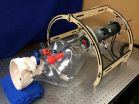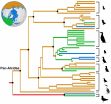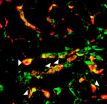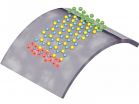(Press-News.org) An investigation into how patient outcomes are assessed in clinical trials has revealed a worrying lack of consistency, raising concerns about funding being wasted on the acquisition of poor quality data.
Information collected through clinical trials plays a crucial role in improving the standard of patient care. Patient Reported Outcomes (PROs) inform our understanding of how certain treatments and interventions work by evaluating their effectiveness, and any potential side effects, from the patient perspective.
Patients in trials are commonly invited to fill in questionnaires about pain, symptoms or other effects on their quality of life.
Research published in PLOS ONE paints a picture of inefficient practice in the design of clinical trials which include PROs. The authors have called for new, streamlined recommendations on how PRO data should be collected.
Professor Melanie Calvert, from the University of Birmingham, explained, "Researchers face a difficult task in designing effective clinical trials that include PROs. It took our team over six months to trawl through over 20,000 papers to find the relevant guidance documents; guidance is hard to access and inconsistent."
Within these documents, the team found 162 separate PRO recommendations. Only five (3%) appeared in more than half of the documents, adding to the confusion. Unsurprisingly, in a separate PLOS ONE publication led by Professor Calvert and Dr Derek Kyte, it was shown that the design of PRO data collection in trial protocols is substandard.
Professor Calvert added, "The discrepancies in how we carry out data collection poses a real problem, data needs to be collected in a consistent manner otherwise we are at risk of seeing poor quality data that is potentially biased."
"The funding available for clinical trials is simply not large enough that we can afford to waste it on collecting biased data. The concern is twofold; that the data will be unusable or, perhaps more worryingly, that potentially biased and poorly acquired data is used to inform policy decisions and the future of patient care."
Maria von Hildebrand, a patient advocate and a lay advisor for the Clinical Trials Gateway, said, "'Further research into streamlining the collection of patient outcomes in clinical trials is clearly needed to encourage publication of results, improve clinical practice and to inform patient care"
"The patient perspective is such a valuable resource. To make the best use of it, we need a more holistic and straightforward set of guidelines."
INFORMATION:
The research was funded by the UK NIHR School for Primary Care Research and included colleagues from across the globe; the University of Birmingham, London School of Hygiene and Tropical Medicine, the University of Sydney, Queens University in Ontario and the University of Bristol.
Poor quality data is informing the future of our patient care, warns study
2014-10-15
ELSE PRESS RELEASES FROM THIS DATE:
Could sleeper sharks be preying on protected Steller sea lions?
2014-10-15
NEWPORT, Ore. – Pacific sleeper sharks, a large, slow-moving species thought of as primarily a scavenger or predator of fish, may be preying on something a bit larger – protected Steller sea lions in the Gulf of Alaska.
A new study found the first indirect evidence that this cold-blooded shark that can grow to a length of more than 20 feet – longer than a great white shark – may be an opportunistic predator of juvenile Steller sea lions.
Results of the study have just been published in the journal Fishery Bulletin. The findings are important, ...
Milky Way ransacks nearby dwarf galaxies
2014-10-15
Astronomers using the National Science Foundation's Green Bank Telescope (GBT) in West Virginia, along with data from other large radio telescopes, have discovered that our nearest galactic neighbors, the dwarf spheroidal galaxies, are devoid of star-forming gas, and that our Milky Way Galaxy is to blame.
These new radio observations, which are the highest sensitivity of their kind ever undertaken, reveal that within a well-defined boundary around our Galaxy, dwarf galaxies are completely devoid of hydrogen gas; beyond this point, dwarf galaxies are teeming with star-forming ...
Getting to know super-earths
2014-10-15
"If you have a coin and flip it just once, what does that tell you about the odds of heads versus tails?" asks Heather Knutson, assistant professor of planetary science at Caltech. "It tells you almost nothing. It's the same with planetary systems," she says.
For as long as astronomers have been looking to the skies, we have had just one planetary system—our own—to study in depth. That means we have only gotten to know a handful of possible outcomes of the planet formation process, and we cannot say much about whether the features observed in our solar system ...
Brain surgery through the cheek
2014-10-15
For those most severely affected, treating epilepsy means drilling through the skull deep into the brain to destroy the small area where the seizures originate – invasive, dangerous and with a long recovery period.
Five years ago, a team of Vanderbilt engineers wondered: Is it possible to address epileptic seizures in a less invasive way? They decided it would be possible. Because the area of the brain involved is the hippocampus, which is located at the bottom of the brain, they could develop a robotic device that pokes through the cheek and enters the brain from ...
Why me? Many women living in poverty blame children, love life
2014-10-15
Having had children – particularly early in life – and a dysfunctional romantic relationship are the two most frequently cited reasons when low-income mothers are asked about why they find themselves in poverty. So say American researchers Kristin Mickelson of the School of Social and Behavioral Sciences at Arizona State University, and Emily Hazlett of Kent State University and the Northeast Ohio Medical University, in a new article published in Springer's journal Sex Roles. The researchers believe that how a woman answers the question of "why me?" when thinking ...
A canary for climate change
2014-10-15
Modern-day puffins and auks have long been recognized as environmental indicator species for ongoing faunal shifts, and fossil records now indicate that ancient relatives were similarly informative. Researchers have found that puffins and auks may have been at their most diverse and widespread levels during a relatively warm period of Earth's history. The results also explain how past extinctions have shaped the geographic distribution and population size of existing species.
Authors Adam Smith of the National Evolutionary Synthesis Center (NESCent) in Durham, N.C., and ...
A global natural gas boom alone won't slow climate change
2014-10-15
COLLEGE PARK, Md. – A new analysis of global energy use, economics and the climate shows that without new climate policies, expanding the current bounty of inexpensive natural gas alone would not slow the growth of global greenhouse gas emissions worldwide over the long term, according to a study appearing today in Nature.
Because natural gas emits half the carbon dioxide of coal, many people hoped the recent natural gas boom could help slow climate change—and according to government analyses, natural gas did contribute partially to a decline in U.S. carbon ...
Natural gas boom will not slow climate change
2014-10-15
This market effect erases the advantage of lower emissions from the natural gas itself, according to an unprecedented international comparison of computer simulations.
"The upshot is that abundant natural gas alone will not rescue us from climate change," says the lead author Haewon McJeon of the Department of Energy's Pacific Northwest National Laboratory (PNNL). Especially in the US advances such as hydraulic fracturing – pumping liquids into stone to break it up and release the gas, known as fracking – and horizontal drilling have led to bountiful natural ...
Discovery of heart's repair process suggests new treatment strategy for heart attack
2014-10-15
UCLA researchers have discovered that some scar-forming cells in the heart, known as fibroblasts, have the ability to become endothelial cells — the cells that form blood vessels. The finding could point the way toward a new strategy for treating people who have suffered a heart attack, because increasing the number of blood vessels in the heart boosts its ability to heal after injury.
In studies involving mice, the UCLA team also found that a drug could enhance this phenomenon and improve the repair process after a heart attack.
The research is published in the ...
Researchers develop world's thinnest electric generator
2014-10-15
New York, NY—October 15, 2014—Researchers from Columbia Engineering and the Georgia Institute of Technology report today that they have made the first experimental observation of piezoelectricity and the piezotronic effect in an atomically thin material, molybdenum disulfide (MoS2), resulting in a unique electric generator and mechanosensation devices that are optically transparent, extremely light, and very bendable and stretchable.
In a paper published online October 15, 2014, in Nature, research groups from the two institutions demonstrate the mechanical ...






